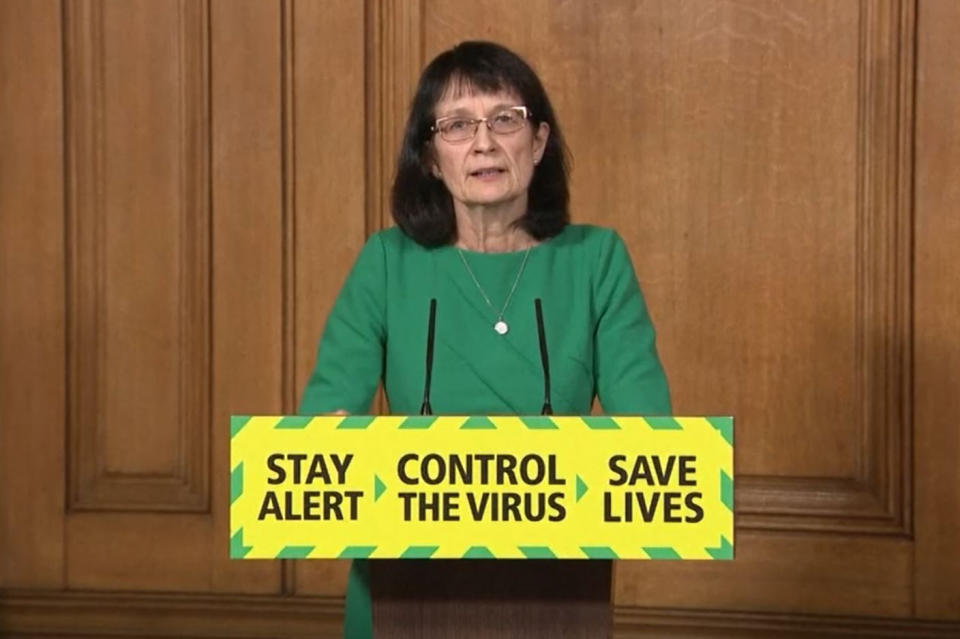Britons should lose weight to help fend off second wave of coronavirus, deputy CMO says

England’s deputy chief medical officer has urged Brits to lose weight in order to help fend off a potential second wave of coronavirus.
Dr Jenny Harries said she is “very, very concerned” about a resurgence of COVID-19 and suggested people take action now to prepare for it.
She said there is good news around COVID-19, such as children not getting very sick, but there are also risk factors, such as people being overweight.
“Obesity is actually problematic and that’s one of the things that we could do something about,” she told ITV’s This Morning.

Dr Harries warned there is “still quite a long haul” to go with the virus and people must not become complacent and must keep up hand-washing, social distancing and limiting social interactions.
She added: “The virus is still out there, it’s looking for more people to infect and we need to stop it getting a grip.”
The deputy CMO said more research is needed regarding the point in an illness at which somebody can transmit the virus, adding that asymptomatic transmission is “really difficult to detect”.
Asked by presenter Phillip Schofield if the virus is weakening in strength, as some scientists believe, Dr Harries replied: “There is a possibility that that is happening but I think we don’t have enough clear evidence of that at the moment.
“And I just say two things: it is possible that that will happen but we should not be complacent.”
Watch video below
Dr Harries suggested the warm weather may have helped keep a lid on the pandemic but this could change in the autumn months.
She said: “Because the weather is slightly with us, it’s quite likely that the summer is sort of running a bit in our favour, that in the warmer weather, particularly when people are outdoors much more – which is much safer – we’re unlikely to see one.
“But I think myself and colleagues are very, very concerned about looking out for a potential second peak as we move into the autumn, and of course that’s the same time that we start having people presenting with other symptoms which could confuse people – so flu symptoms vary, obviously, and also when our hospitals get busier.”
Dr Harries warned it is “highly unlikely” COVID-19 will just be eliminated and she believed a vaccine would not be found this year.
Dr Harries said she is “very comfortable about children going back to school”, adding that gaining education will “set up their own life chances and their own health outcomes”.
Coronavirus: what happened today
Click here to sign up to the latest news, advice and information with our daily Catch-up newsletter
Read more about COVID-19
How to get a coronavirus test if you have symptoms
How easing of lockdown rules affects you
In pictures: How UK school classrooms could look in new normal
How public transport could look after lockdown
How our public spaces will change in the future
Help and advice
Read the full list of official FAQs here
10 tips from the NHS to help deal with anxiety

 Yahoo Finance
Yahoo Finance 
